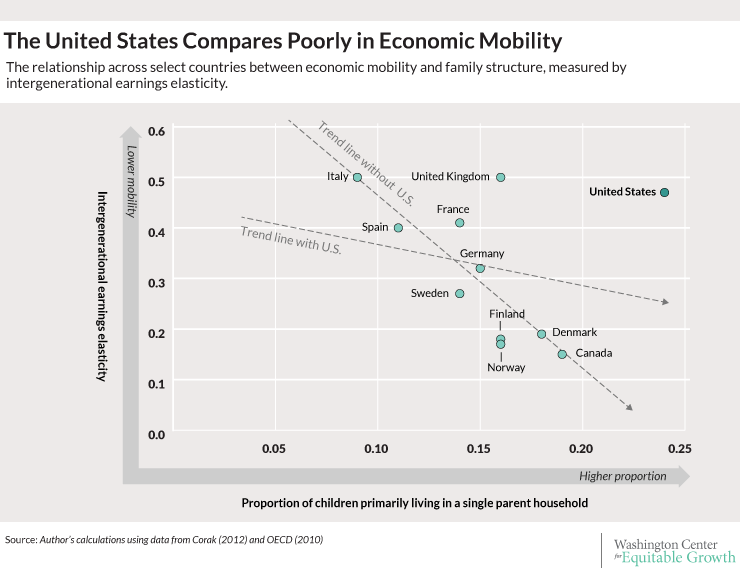Quote:
Originally Posted by CliffFletcher

But marriage is the big one. Being raised in a single-parent household is the single greatest handicap to upward mobility. This research on this is overwhelming. The collapse of marriage and enduring two-parent households to raise children in has been a catastrophe for the working class and poor. No social programs can come close to providing the emotional, social, and economic support of two parents dedicated to raising children.
The problem is this reality does not fit into the narrative of modern progressives. Marriage is seen as patriarchal. Calling for the support of traditional family structure is something conservatives do. Pointing out the really bad outcomes of children raised out of wedlock is denounced as victim-blaming.
So the single biggest factor in encouraging economic security and upward mobility is more or less ignored by those who regard themselves as the champions of the disadvantaged. Ideology trumps utility.
And this isn't really a race issue - marriage is now collapsing as an institution among the white working class now too, with the same catastrophic consequences.
|
There are a couple of issues with that line of thought though. First, it's far from an accepted fact that marriage is the causative force driving the economic results. There is a correlation for sure (at least in the United States), but is marriage the cause of these benefits or are people who are in a position to raise successful children more likely to be married than people who are not?
One of the biggest studies on the issue (a 2014 one from Harvard) found a heavy correlation between areas with high rates of single parent households and poor economic mobility. But importantly, that correlation also extended to children of married parents within the same community. To me that suggests that marriage breakdowns are a symptom of economic instability at least as much as they're a cause of it.
And this correlation of single parent families to poor economic outcomes is heavily variable based on region. On the west coast and in the Northeast of the United States, rates of single parent households are higher than average yet there is much more economic mobility than other places. Conversely, there is far less mobility in the rust belt and in the south. Places like Seattle or San Diego have a similar rate of single parent families to places like Cincinatti or Indianapolis, yet the former cities provide about twice as much economic mobility when compared to the latter.
And when you look outside the United States the data actually shows the opposite. Countries like Canada, Finland, Denmark, Norway, etc. have fairly high rates of single parent families yet they have strong economic mobility. In the most industrialized nations in the world, there's actually a negative correlation between the rate of single parent households and a lack of economic mobility:

And secondly, even if one accepts that the viewpoint that marriage is the cure for economic ills, what exactly can be done about it? How can you encourage people who don't want to be married to get or stay married? Make divorce harder? Give tax breaks to married people? Those sound like terrible ideas to me.